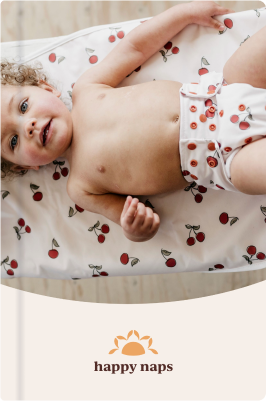Our story
"Our goal is to decrease disposable diaper waste with 20% by 2025. Can we count you in?"
We are on a mission! We are cleaning up the planet by providing an alternative for disposable diapers which is not only better for Mother Earth but also for your baby’s health. We strive to change the norm. Help us to make this happen, one nappy at a time. Thank you!

























